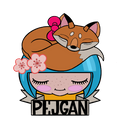In May 2022 the first Agile Testing Days Open Air took place, and there Samuel Nitsche and I premiered our workshop “How to make meetings not suck”. This post is my reflection on the process of creating the workshop and a slight summary of the workshop itself.

Designing a new workshop is always a gamble and kind of nerve wrecking. You work really hard on creating a structure and content that you hope will be valuable but you never know if it will actually work. To add to that, this is the first collaboration I’ve done with Samuel and we have very different styles that we had to make fit. Again, you never know if it will work until you actually run it.
Samuel and I met at Agile Testing Days last November but “knew” each other from Twitter from before that. We were both speakers and we connected in that way you sometimes do. We said early on we wanted to collaborate and pair on something. I expected it to be live testing/coding, a workshop on testing databases or differences between different types of databases. If you had asked me to give you my least expected topics, communication and meetings might very well have been my answers.
Since we live in different countries, work full-time and both have families – a lot of our collaboration has been short(-ish) sync meetings over video with asynchronous collaboration through Miro and Google Doc/Slide in between. I can’t believe how exceptionally smooth this has been and how great the end result turned out.

I have a lot of theoretical (as well as practical) experience to lean on and my original structure was very formal and heavy. This is something I struggle with. I always feel that I need to teach participants, to make sure they learn something new and get value for their time (and/or money). Samuel has a very theatrical and creative approach to his talks and when we compared our two initial structures, they could not be more different. The amazing thing was – when combining them we ended up with something we both felt was so much better but also very strongly represented us.
The end result is a workshop that is 99% experience based. Through 5 meetings we take you through how to improve your meetings with thoughtful preparation, active facilitation and following up. As one participant said: “I learned nothing I didn’t really know, but now I understand why those things are important”.
The workshop went very well, we got amazing feedback and even though we found some tweaks, it feels like it was valuable, fun and more than met both mine and participants’ expectations.
So what did we actually cover?
Preparation
- Outcome and purpose drives the meeting
- Invite the right attendees. They should have relevant input, be needed for decisions
- Tailor an agenda that is relevant to all attendees, fits the purpose and the time frame.
- Send out pre-reads to increase diversity of voices
- Know your participants. Some will love fun and games, some will find them insulting. Tailor your format to your purpose + attendees
During
Meeting facilitation is a skill and an important role. You need to
- Make sure everyone is heard
- Make sure no one takes the meeting hostage
- Drive the agenda and make sure to keep the time (time boxing can help!)
- Decide and document actions and next steps
After
- Follow up on actions and next step
- Ask for feedback
- Check in with people to give them a chance to add input they were not ready to give in the meeting
No rocket science but it’s incredible how they can change how you experience your meetings.
And remember: not everything needs to be a meeting. Sometimes it’s better to just send that email.
If you would like to read more, I have an ongoing project to add more of the theory and resources here.
